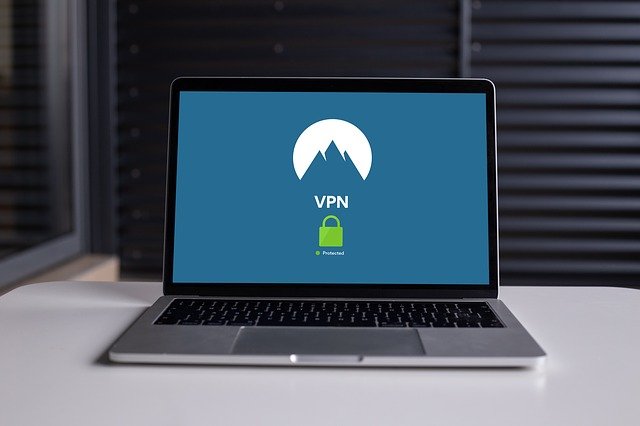You may have heard all about VPNs or Virtual Private Networks. Then again, you may have not, and that is totally fine! You are certainly not alone. The goal is to spread awareness about VPNs as much as possible and to improve everyone’s cybersecurity and privacy stance. The fact is that VPNs (which we will explore more about later) do wonders for your personal cybersecurity. This means, simply put, the protection of your internet network (and further down the line, your actual devices) from certain attacks and espionage. Now, you might not be shocked to know that such software comes at a small price. A monthly subscription is required to get a top-tier VPN where you can put your mind at ease and let the software do its thing in the background. This price is equivalent to a few items at the grocery store per month. Well, hundreds of millions of people are already using VPNs. It is alright, then, to assume that some customers want a good VPN experience without having to pay a monthly subscription fee. The good news is that legitimate free VPNs do exist, but the tradeoff is that you have to really know what you are doing and ultimately trust that your research won’t land you in a heap of network security trouble because you’ve decided to use a questionable but ‘free’ VPN service. Do not fear, because we’ve got you covered and have done all the homework. Below you will find all the information you need to know, handpicked by experts, about legitimate free VPN services that have stood the test of time and are completely safe to use.
Before we get into that, however, a bit of background information on VPNs as well as an explanation of what VPN software is in-depth is required to understand why you might not want to opt for a free VPN without expert tips beforehand.
What is a VPN and Why Use One?
A VPN, or Virtual Private Network, is a network security application that is essentially the modern and better version of Microsoft’s PPTP tunneling that has existed since the 1990s. Simple forms of VPNs, known as web proxies, do exist but it is hardly recommendable to use something like that. Think of a VPN as a mask that you put on your laptop, smartphone, or tablet. For the security of your network and the sensitive data on your devices, you want the best. This means picking up a VPN with advanced kill switches, a minimum of 256-bit military-grade encryption, great customer support, and all the other bells and whistles that should come with a premium product.
First off, what does a VPN actually do? A VPN filters all of the internet traffic coming to and going out of your device all the way to your router (security for a router is a different story). This is critical because it stops hackers from interfering with your network and your devices, anonymizes you in the process, and runs silently in the background in the meantime.
VPN providers differ a lot, and so do their products. This is why it is crucial to abide by expert guidelines when it comes to protecting your photos, emails, financial information, and ultimately the stability of your electronic devices that are connected to the internet. For this reason, most people will go for the best VPN out there. Others, however, are fine using a much more limited and less sophisticated free VPN service. Thankfully, though, you have the option of running a satisfactory free VPN with our help below. In fact, we’ve found seven for you to choose from.
Free VPNs That Actually Work
Most premium VPN providers (let’s say, the commercial and legitimate providers) do offer a free version of their services. These are quite limited in comparison to what premium lines offer but will get the job done without you getting hacked or scammed. Some of these legitimately free VPN services are;
- PrivadoVPN
- ProtonVPN
- me
- TunnelBbear
- Atlas VPN
- Windscribe
- ZoogVPN
These are not random VPNs you can pick up on app stores or online, as those may be infected or a scan. These are legitimate free services that branch off of premium VPN providers. Yes, you won’t be paying a dime for these services, however here are the disadvantages;
- Speed caps
- Data limits
- Lack of servers
- Lack of extra features
- Lack of ultimate security
If you want all of the above criteria to be fulfilled to the max, you will have to pay for a premium VPN service. However, for most people, a free VPN will do just fine in protecting and satisfactorily anonymizing you given that you don’t mind these limitations.
Perhaps a better option for some of you would be to try out a free trial of a full-fat VPN such as NordVPN or Cyberghost and see if you are happier with that. You can cancel those free trials within thirty days. If you are adamant about not paying a cent for a VPN, you will be fine with the offerings above. You will get;
- Unlimited speed
- Unlimited data with ProtonVPN only
- Between 3 and 50 servers
- Netflix unblocking with PrivadoVPN only
- Torrenting with PrivadoVPN, Hide.me, Atlas VPN, Windscribe and ZoogVPN
- Full encryption with all except ZoogVPN which only goes up to 128-bit
- All VPNs are compatible with all devices and operating systems
Finally, whether you’ve gone for a free VPN or a premium VPN, there is no doubt you’ve increased your personal cybersecurity and privacy either way. In a time when the internet is quite dangerous and full of scams, it is natural to want to protect oneself in the best way possible. More than that, perhaps you want to protect your friends and your entire family. The average household these days carries several devices, each of which is at risk if not secured. This is why we should all install and use a VPN!







Recent Comments